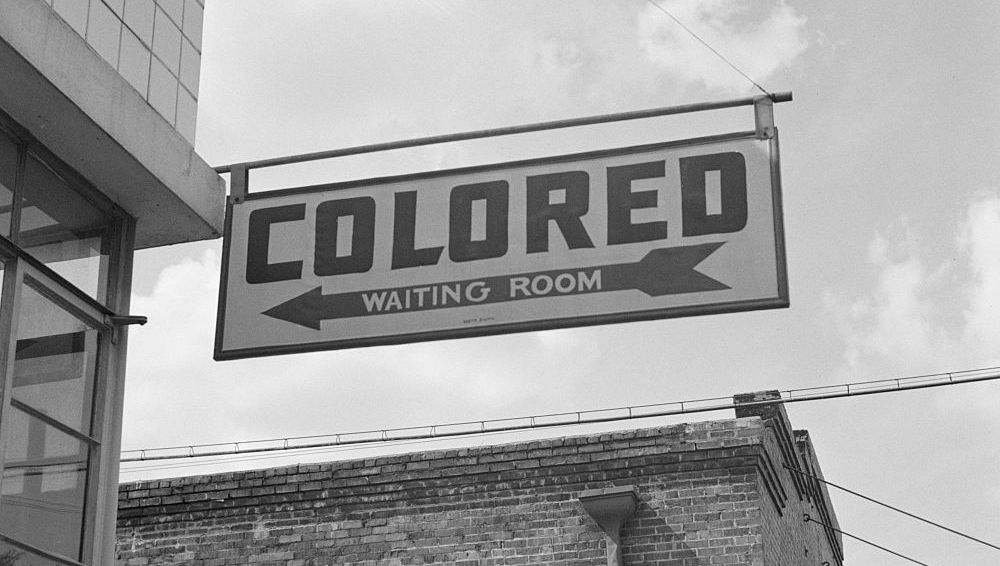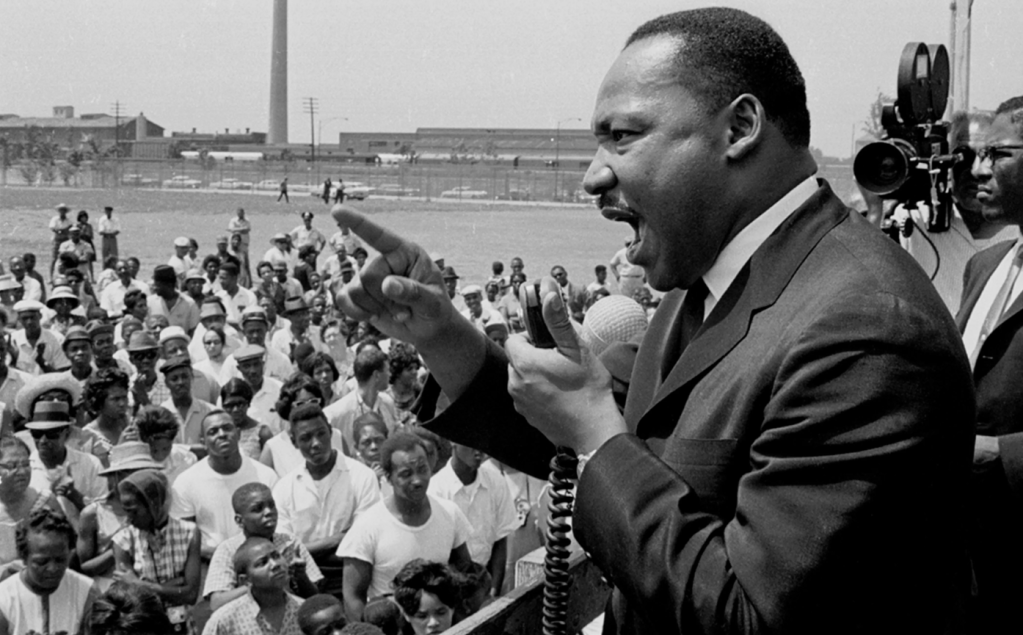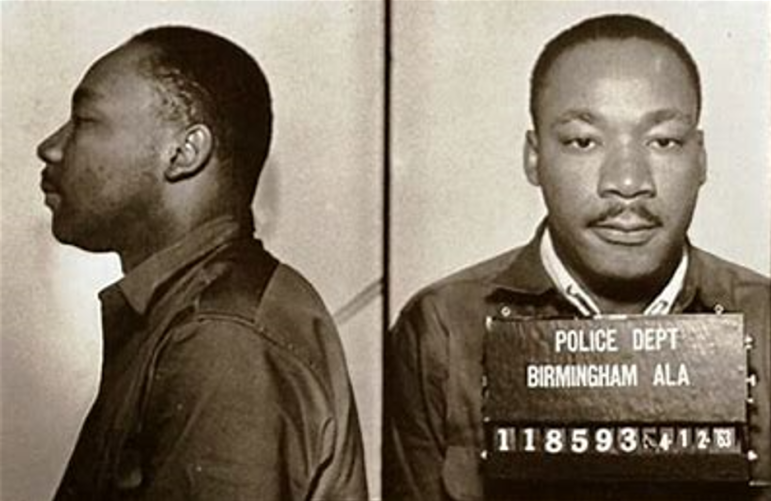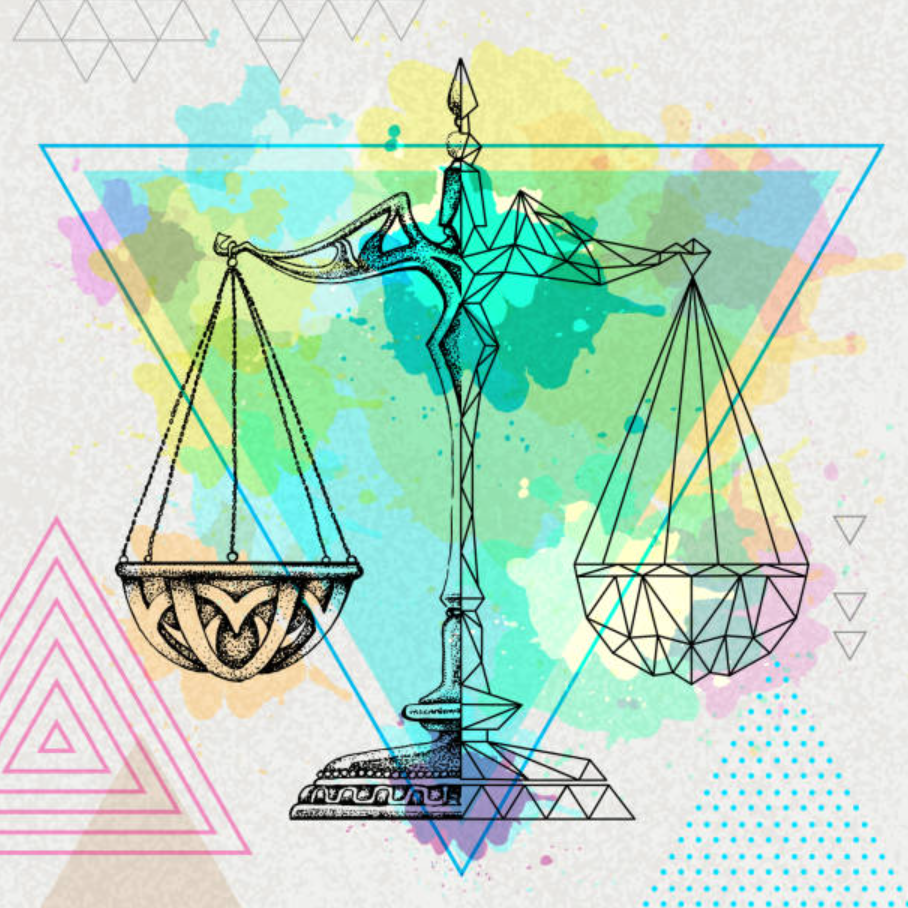by W.D. James
On April 3, 1963, Martin Luther King, Jr., with the Southern Christian Leadership Conference (SCLC) and other civil rights organizations, commenced a planned campaign of civil disobedience aimed at targeting the segregation laws operative in Birmingham, Alabama, USA. The campaign would include lunch counter sit-ins, marches, and a boycott of downtown businesses. The civil authorities obtained an injunction against the protests. King and other leaders of the movement consciously chose to violate the injunction, risking arrest and incarceration in the process. Arrested protesters had their bond posted by movement funds until those were depleted. At that point, King and other leaders stepped up to violate the injunction, knowing that if they were arrested and jailed, they would be spending a considerable time behind bars. On April 12 King was arrested. It was Good Friday. What better day for a Christian minister to undergo persecution? Not bad messaging either. How stupid can tyrannical regimes be that they would provide their opponent such a gift of timing? They can be plenty stupid.
Natural Law
Bail money would be gathered for King’s release by April 20.i In the intervening eight days, he penned the now famous Letter from Birmingham Jail, addressed to his “Fellow Clergymen.” The clergymen in question were those calling for the protesters to obey the law (ie, stop the protests and acts of civil disobedience). This is a fine text, despite the conditions under which it was written. Or, perhaps, because of them—the number of great texts written while the author was imprisoned is remarkable. Perhaps the unhospitable circumstances and threat to one’s future do something to sharpen one’s ideas and facility of expression.
One can fruitfully approach the Letter from a number of directions. It is a key document in the history of non-violent civil disobedience, laying out a theoretical basis for it. I have taught the text as an example of political rhetoric; it could hardly be more masterful in addressing its targeted audience (though clearly it is also meant for a larger audience) with continual reference to intellectual authorities whom they are bound to recognize (including Martin Luther and Thomas Jefferson). Here, however, I would like to focus in closely on King’s appeal to natural law theory.
The Western natural law tradition (there are others) developed out of classical sources like Stoicism and the thought of Aristotle and Cicero. It was developed further in the medieval period and largely brought to perfection in the thought of Thomas Aquinas. It continued on (in a somewhat thinned down version) in the Protestant ‘resistance to tyrants’ tradition and on into the modern liberal political theory of John Locke and the Declaration of Independence. In what follows, I will outline the basic structure of natural law theory as developed by Aquinas, then look at King’s use of it, and finally, arc back to implications of the theory that I think King was well aware of but left unstated.
All law, for Aquinas, is an appeal to reason. It calls us to recognize just claims. That is, law for Aquinas never had the character of arbitrary command: it is always the voice of reason speaking to us at various levels of specificity. His natural law theory recognizes four basic types of law, all arranged in a hierarchy of authority. This point might initially concern some of us, but we’ll see why it is absolutely necessary, and in fact serves the purpose of providing justification for resistance to unjust authorities (powers), like the courts of Alabama in King’s case.
Let’s lay out Aquinas’ four types of law schematically, then look at them in more detail in turn:
| Eternal Law | The law as eternally present in ‘the mind of God’ |
| Divine Law | The law as revealed by God in scripture |
| Natural Law | The aspects of eternal law as grasped by human reason |
| Human (positive) Law | The law as promulgated by political authorities |
Eternal law is the fundamental rational ordering principle of all that exists. It is essentially the same thing that other philosophical traditions have called the logos or the Tao. As law it includes the most abstract moral principles conceivable such as good is good and we are to seek the good and spurn badness or evil. As we saw in my ‘Deep Resistance’ essays, it was faith in this that allowed the Stoics to trust that the cosmos was a cosmos and was providentially ordered to bring about the good.
Divine law has less of a correlation in the classical natural law tradition. It depends on trust that in sacred texts God has made his moral will known with greater specificity than in the eternal law. The Ten Commandments would be a prime example. Seeking the good and avoiding evil entails such things as respecting one’s parents and not murdering. As the Greeks (and Confucians for that matter) demonstrate, you can hold to a natural law philosophy with this aspect of law left out. Aquinas was a Christian and he includes it.
Natural law is the level of law which is in principle knowable to our unaided human reason and which outlines what is required if we wish to fulfill our human nature. It includes things like self-evident first principles of practical reason (this is where Jefferson in the Declaration comes up with the language of ‘self-evident’ truths). This would include things like the propositions that it is good for human societies to reproduce the species, nurture and educate the young, and act justly within social interactions, including things like paying a worker a just wage. It will also contain natural rights, like Locke’s rights to life, liberty, and property.
Human law, or positive law, is the laws written down or otherwise promulgated by political authorities such as obey the speed limit, murder is a felony, there will be a tax on tea, and blacks and whites in Alabama will operate under codes of racial segregation.

Now, back to that hierarchy of authority issue…. The cool thing about a natural law tradition is it allows one to make moral and legal challenges to human laws, the laws of governments. Each level of law in the above schema is dependent on the levels above for its legitimacy. If we focus in on natural law and human law (where natural law thinkers usually spend most of their time) we can see how this works in practice. Let’s say there is some law of the government exerting power over us which we don’t think is right. The very idea that we have a notion of ‘right’ that transcends the actual laws suggests there is in fact a natural law of which we are aware.
If we choose to do that, we can proceed in a couple of different ways. If we can argue that a given positive law violates a discernable principle of natural law, or a discernable natural right, we have an argument that the human law is unjust. Alternatively, we can rest assured that the natural law, by definition, is consistent with human wellbeing, human flourishing. So, if a given human law is not consistent with this overall function of natural law, we can also argue that it is unjust. Hence, any law that is oppressive or dehumanizing is by definition contrary to the natural law.
Within this tradition, human laws gain their legitimacy by being in accord with the higher forms of law (that is, by according with genuine morality and metaphysical reality, not at all because the government has the power to impose laws). Further, any human law which can be shown to violate natural law (which is in effect immoral) is no law at all.ii The government still has the power it has, but we have no obligation to obey it.
King’s use of natural law theory
In response to his fellow clergy’s admonition that we should obey the law, King reminds them: “There are two types of laws: just and unjust. I would be the first to advocate obeying just laws. One has not only a legal but a moral responsibility to obey just laws. Conversely, one has a moral responsibility to disobey unjust laws. I would agree with St. Augustine that ‘an unjust law is no law at all.’” Notice what operating within a natural law tradition is allowing King to do here. He is not left with just saying ‘I don’t like that law’ or ‘that law is opposed to my interests.’ He has an ethical and judicial basis from which to claim that the realm of positive law does not necessarily correspond to ethics, that ‘lawful’ does not automatically mean ‘just’. Arguments will not always win the day. It is, nevertheless, good to have them on your side.

He goes on to explain his position: “A just law is a man-made code that squares with the moral law or the law of God. An unjust law is a code that is out of harmony with the moral law. To put it in the terms of St. Thomas Aquinas: An unjust law is a human law that is not rooted in eternal law and natural law. Any law that uplifts human personality is just. Any law that degrades human personality is unjust. All segregation statutes are unjust because segregation distorts the soul and damages the personality.”
Thus King the logician:
Human laws which violate natural law are unjust.
Segregation laws violate natural law.
Therefore, segregation laws are unjust.
QED
Rock on Dr. King!
Now, let’s notice a very peculiar thing about the overall structure of natural law theory in its political operations (as distinct from its use as a resource for structuring our own moral vision, conscience, and life path). Levels one and three of the hierarchy are meant to be coterminous with reason. Level one rests on the assumption that the universe is rationally and well ordered. Level three is meant to represent the voice of human reason as a manifestation of that overarching reason. Level two is fairly specifically Christian, but it too is understood as an expression of rationality (hence, revelation must be interpreted in ways consistent with rationality). Human laws will then be validated or invalidated based on the rational apprehension of their conformity to human nature and justice in general. Laws are not valid because they stem from a particular political authority or because they are backed up by power. So, on this scheme, governmental laws are always at the theoretical disadvantage. They must always justify themselves.
Let’s look at that in practice and see how the metaphysical hierarchy in which natural law theory is grounded provides the basis for undercutting human hierarchies! Imagine the government issues a law which our reason, conscience, and natural moral intuition all approve. Will we have any problem obeying such a law or feel it is oppressive? Probably not. Really, if we’re fairly reasonable and decent people we didn’t even need it to be a law except for convenience sake (should we drive 20 or 25 miles an hour past a school while the kids are out playing? Well, just pick one and that’s what we’ll do). On the other hand, let’s assume the government promulgates a law that is irrational, violates our consciences, and/or our innate sense of moral fairness? Well, natural law theory gives us good ground to stand on in opposing such a law. See what has happened? Natural law theory will tend to counsel obedience of those laws we already would have been fine with obeying (even without a law) and gives us ground to challenge all the laws which we would not be fine with.
Tyranny
The mode of resistance to unjust law that King defends to his contemners is explicitly non-violent civil disobedience. I think King well knows that (partly for strategic reasons, partly out of an abundance of caution to not violate Christian moral principles, and partly out of the strategic objective of ultimately achieving a reconciliation with the segregationist white folks he and the movement are opposing) this places two restraints on their tactics that are not called for in classic, Thomistic (not to mention Protestant and classical liberal) natural law theory.
First, there is no prohibition on the use of violence. Within classical thinking (along the exact same lines as ‘just war theory’), the main restraint on violence is that it be proportionate to the level of threat encountered so that the moral priority of life is preserved. If someone is threatening to take a small portion of my property and otherwise is not posing any danger to myself or others, I should only employ sufficient violence to dissuade them, but am probably not justified in taking their life. If someone is actively shooting all the kiddies in a school, I should use all the violence at my disposal to stop them, so as to preserve as much life as possible. By adopting non-violence as an overarching strategic principle King is limiting his movement’s right to use violence beyond what is mandated by natural law theory.
Second, King has limited the scope of confrontation to civil disobedience (the non-compliance with an unjust law with the aim of bringing to public attention its unjust nature with hopes that society as a whole will wish to change it). Already, with Aquinas, in certain circumstances, natural law theory justified quite a bit more when confronted by a tyrant imposing laws that were unjust. Aquinas had justified, at an individual level, the right of an individual to kill a tyrant as a consequence of their right to self-defense. Further, he had justified the right of a group of people to engage in revolution if they were prepared to take on the legitimate duties of government to administer genuine justice.
Rock on Aquinas!
Aquinas had justified all of this in the 13th century. It is true that his overall philosophy is complex and there are virtually infinite qualifications one would need to apply in a given situation to determine what exact level of resistance was justified. Three or four hundred years later when we get slightly more militant Protestant theory and the theories of people like Locke who would play directly into our own American revolution, the main gain that I am seeing in the natural law tradition’s theory of resistance to tyrants is the explicit right of preemptive action. If we see the tyrant preparing the chains with which to bind us, we need not wait till they are fastened upon us. Not to mention that much was lost by the Protestant and liberal turn toward metaphysical nominalism.
Nevertheless, rock on Locke and Jefferson!
Modern people have largely fallen out of love with natural law. I think the basic issue is that it entails the notion that there is a human nature and that right and wrong go deeper than what the positive law states. King’s Letter helps us remember that natural law is a strong resource in opposing unjust positive laws and can provide a basis for a community to come to moral and legal agreement on issues.

i One assumes that if the primary national leader of the civil rights movement had wanted to be released more quickly, money could have been obtained. One senses that King meant both to lead by example (in that bail money for every possible arrestee could be gotten together so quickly and that the longer he was behind bars, the worse it looked for the authorities. Perhaps he only moved as quickly as he did because his personal appeal was essential to gaining donations to support the overall cause.
ii Over the past several decades, the US Supreme Court has explicitly stated that it will not entertain arguments from natural law in particular cases, especially cases related to gender ideology and sexuality. From a natural law perspective, the perspective from which our right to revolution and to establish ourselves as a separate people and country from Great Britain was justified, as soon as the supreme legal authority of a government states that its laws are beyond natural law, that government is a tyranny, by definition. Just saying.
WD the logician:
Positive law that is in accord with natural law is legitimate
Positive law is the will of a government
Therefore, if the will of a government is not in accord with natural law, it is not legitimate
Our government’s will is not in accord with natural law
Therefore, our government’s will is not legitimate
QED
Rock on WD!




Hi Tobin,
Thanks for the comment.
I remember going to Sanctuary Movement events back in the 80a— think I wore my Sandinista t-shirt to some of those.
I don’t know Jim or his ideas, but suspect I would like them.
Good questions.
In principle, I think classic natural law thinking would have to account for the land. At least within the Christian tradition all of creation has a purpose to fulfill and hence natural law would be seen as safeguarding that. Though a fair criticism might be that that aspect has been underdeveloped.
LikeLike
Thanks for this explanation. I’ve wondered for a long time how Natural Law originated and what the relationship is to other kinds of Law.
I will add to this discussion the ruminations of Quaker rancher/philosopher Jim Corbett, author of the book Goat Walking: A Guide to the Peaceable Kingdom and, posthumously, Cowballah, which can be seen as a kind of continuation of the ruminations of the first.
Corbett was a believer in law… though he doesn’t explain that concept as well as you do and leaves it up to his readers to decipher what he means. But Corbett was also a principal player in the Sanctuary Movement, which helped refugees fleeing (US instigated?) war in Guatemala and El Salvador in the1980s to reach the United States and provided safe places for them to arrive and be sheltered in defiance to U.S. immigration policies which, Corbett says, were illegal under U.S. and international law. U.S. immigration was capturing them and sending them back, in spite of the fact that fleeing families faced the threat of death if they returned to their home countries.
But beyond his involvement in this human sphere, Corbett advocated for something he called “rights for the land” and referred to as “redemption” of the land, and the land community, from its sojourn into slavery. He called for the formation of a people who hallow the land and all of its inhabitants, human or otherwise. And he insisted that while an individual can act upon conscience, only a covenant community can enact a hallowing way of life.
His ideas developed into the formation of the Saguaro-Juniper Covenant land, adjacent to the Cascabel community–a loose association of like-minded neighbors in rural Arizona.
I bring this out because I noticed the relationship between Natural Law as you describe and Jim’s sense of law, but I also noticed that the tradition of natural law is human-centric. Moreover it doesn’t specifically address one of the crucial elements of today’s dilemmas–enslavement of the land and devaluation of the land community, i.e. all the living and non-living beings within it.
In Cowballah, Jim notes that when most people are in the presence of a cow, “they don’t see anyone there.”
LikeLiked by 1 person